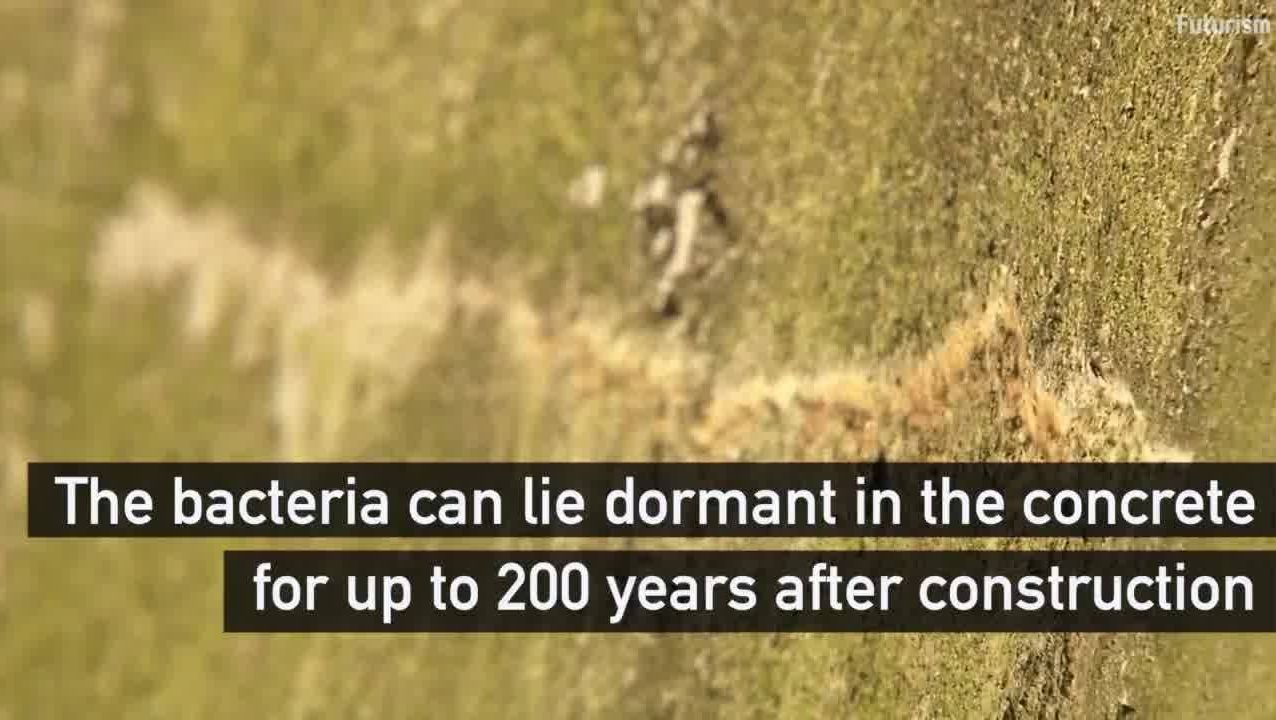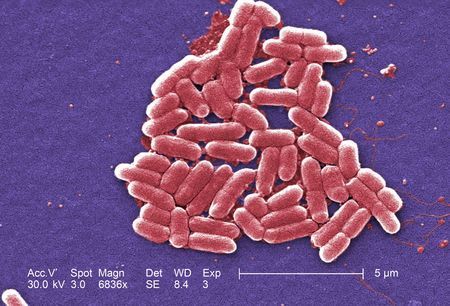Page 11076
May 27, 2016
Light Can ‘heal’ Defects in New Solar Cell Materials
Posted by Karen Hurst in categories: electronics, nanotechnology, particle physics, solar power, sustainability
A family of compounds known as perovskites, which can be made into thin films with many promising electronic and optical properties, has been a hot research topic in recent years. But although these materials could potentially be highly useful in applications such as solar cells, some limitations still hamper their efficiency and consistency.
Now, a team of researchers at MIT and elsewhere say they have made significant inroads toward understanding a process for improving perovskites’ performance, by modifying the material using intense light. The new findings are being reported in the journal Nature Communications, in a paper by Samuel Stranks, a researcher at MIT; Vladimir Bulovic, the Fariborz Maseeh (1990) Professor of Emerging Technology and associate dean for innovation; and eight colleagues at other institutions in the U.S. and the U.K. The work is part of a major research effort on perovskite materials being led by Stranks, within MIT’s Organic and Nanostructured Electronics Laboratory.
Tiny defects in perovskite’s crystalline structure can hamper the conversion of light into electricity in a solar cell, but “what we’re finding is that there are some defects that can be healed under light,” says Stranks, who is a Marie Curie Fellow jointly at MIT and Cambridge University in the U.K. The tiny defects, called traps, can cause electrons to recombine with atoms before the electrons can reach a place in the crystal where their motion can be harnessed.
May 27, 2016
London black cabs are becoming London green cabs
Posted by Shailesh Prasad in category: futurism

London black cabs are going to go electric. https://www.facebook.com/HuffPostUKTech/videos/1230444406965677/
London black cabs are becoming London green cabs and going ele…
More Videos by HuffPost UK Tech.
May 27, 2016
31 responses to “Neverending Sex”
Posted by Maria Konovalenko in categories: biotech/medical, life extension, sex
Let’s formulate the task of life extension slightly differently. Something like this…How can we extend sex appeal?
Gyms and beauty salons are in charge of this question now. There is some success, but it’s mostly superficial. Plastic surgery only masks, but doesn’t delay the processes of aging.
Expanding sex appeal is a complex task. Its aspects include both beauty and the activity of the brain. To be sexually attractive we have to be smart and fun. One cannot solve the problem of dementia with makeup.
May 27, 2016
Corrected: U.S. sees first case of bacteria resistant to last-resort antibiotic
Posted by Sean Brazell in categories: biotech/medical, health
By ransdell pierson and bill berkrot.
(Reuters) — U.S. health officials on Thursday reported the first case in the country of a patient with an infection resistant to a last-resort antibiotic, and expressed grave concern that the superbug could pose serious danger for routine infections if it spreads.
“We risk being in a post-antibiotic world,” said Thomas Frieden, director of the U.S. Centers for Disease Control and Prevention, referring to the urinary tract infection of a 49-year-old Pennsylvania woman who had not traveled within the prior five months.
Continue reading “Corrected: U.S. sees first case of bacteria resistant to last-resort antibiotic” »
May 27, 2016
This cognitive scientist says the world as we know it is an illusion
Posted by Sean Brazell in category: neuroscience
The cognitive scientist Donald Hoffman uses evolutionary game theory to show that our perceptions of an independent reality must be illusions.
May 27, 2016
Archaeologists think they’ve found Aristotle’s tomb
Posted by Sean Brazell in category: futurism
Nearly 2,400 years after his death, archaeologists believe they’ve finally found the tomb of Aristotle. Researchers made the discovery during a 20-year dig in the ancient Greek city of Stagira, reports Atlas Obscura.
Aristotle was born there in 384 BC, but he died in a different city, Chalcis, about 50 miles north of Athens. Literary sources mention that Aristotle’s remains were moved to Stagira after his death, but his burial site has been a topic of debate for many years, the International Business Times reports.
The tomb in Stagira believed to be the philosopher’s is a 32-foot-tall dome with a marble floor and views of the entire city. “The thing is, the archaeologist data is in fine accordance with historical sources,” archaeologist Konstantinos Sismanidis tells CNN.
Continue reading “Archaeologists think they’ve found Aristotle’s tomb” »
May 27, 2016
The Future of Humanity’s Food Supply Is in the Hands of AI
Posted by Shailesh Prasad in categories: biotech/medical, computing, food, health, information science, mobile phones, robotics/AI, satellites
Perhaps it’s serendipitous, then, that the machines have finally arrived. Truly smart, truly impressive robots and machine learning algorithms that may help usher in a new Green Revolution to keep humans fed on an increasingly mercurial planet. Think satellites that automatically detect drought patterns, tractors that eyeball plants and kill the sick ones, and an AI-powered smartphone app that can tell a farmer what disease has crippled their crop.
Forget scarecrows. The future of agriculture is in the hands of the machines.
A Digital Green Thumb
Continue reading “The Future of Humanity’s Food Supply Is in the Hands of AI” »
May 27, 2016
Project Goa Will Bring Virtual Reality To Any Smartphone
Posted by Shailesh Prasad in categories: mobile phones, virtual reality
May 27, 2016
Say ‘Goodbye’ to Cracks, Self-Healing Concrete Has Arrived
Posted by Shailesh Prasad in category: materials

https://www.facebook.com//videos/496701823842355/
Say ‘Goodbye’ to Cracks, Self-Healing Concrete Has Arrived.















